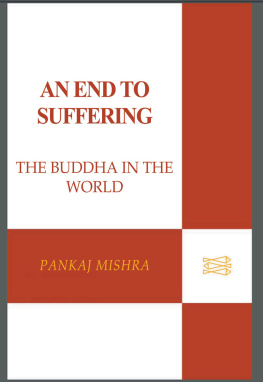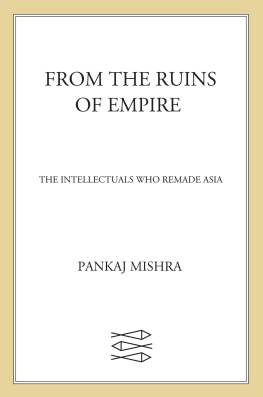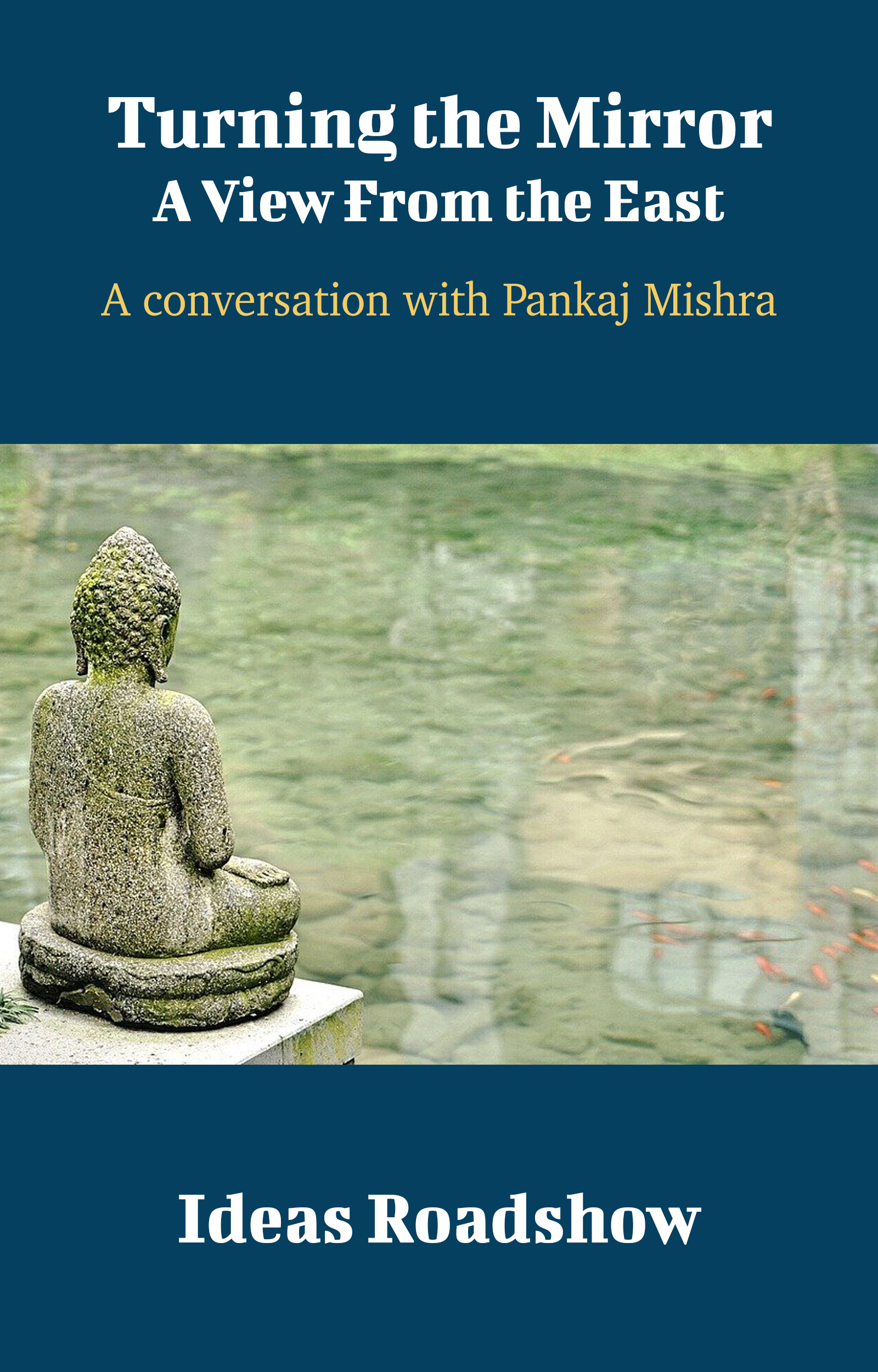The contents of this book are based upon a filmed conversation between Howard Burton and Pankaj Mishra in London, England, on March 21, 2013.
Introduction
The Weight of History
Sometime shortly before my eighth birthday, I had my first personal taste of the legacy of history. I was visiting Mont Ste. Anne just outside of Quebec City and found myself sitting beside someone on a chairlift who went out of his way to make me feel inadequate because I was unable to successfully communicate with him in French. To him, clearly, I was yet another in a constant line of imperialist anglophones cavalierly encroaching upon his land.
Of course I was nothing of the sort: I was just a middle-class kid from Toronto on a family ski holiday. But the whole experience made me feel both ashamed at my linguistic inadequacy and indignant that I was somehow being held responsible for historical events that I wasnt even loosely associated with. What, I can remember thinking defensively, had any of this history business to do withme?
It all seemed monstrously unfair. After all, it wasnt as if I was even indirectly responsible, a proud descendant of British military veterans who had served on the Plains of Abraham. As it happened, when the Battle of Quebec was going on, my ancestors werent speaking English or French. And yet, irritatingly, none of that seemed to matter. To my tormentor that day I might have been General Wolfe himself.
Mind you, there is oppression and there is oppression. If the Qubecois are justified in putting Je me souviens on their license plates, it does rather make one wonder what sort of appropriate response the Chinese might be entitled to after having suffered the unrelenting series of imperialistic subjugations from the Opium Wars to the Rape of Nanking.
There are no hard and fast rules here, no well-established scale of historys burdens. But one thing is abundantly clear: it is not enough to protest, I wasnt there! or This had nothing to do with me!
Because not having been there isnt the point. What matters is to both remember and actively seek some understanding of what has occurred: a careful, studied reflection of what has gone before is the primary way we can elevate our present circumstances beyond that of a seemingly random series of disconnected events. It is not just contextalthough of course it is that too. It is an opportunity to experience a real sense of perspective, real empathy, real understanding.
In From the Ruins of Empire, The Intellectuals Who Remade Asia, celebrated writer Pankaj Mishra, provides us with just such an opportunity. By closely examining the work and impact of a small number of highly influential Asian thinkers of the mid to late 19th and early 20th century, Mishra does more than simply shatter trite stereotypes of East vs. West, he gives us a real sense of empathy of what it was like to be living at that place and time.
One of the impulses behind the creation of the book was to excavate certain ideas, certain ways of life, certain worldviews that we have tended to neglect if not suppress or ignore altogether: to look at what, say, a Chinese intellectual in the late 19th century or early 20th century, was thinking when confronting this enormous challenge of Western imperialism or Western capitalism. That kind of challenge was really existential; and my book is really about individuals at particular stages in history, looking at the world around them, seeing existential challenges everywhere.
How can we hold on to the society weve had and its traditionsparticularly literary traditions, cultural traditionsthat have been around for a very long time? How can we hold on to those, while also living with dignity in the wider world?
So imperialism becomes a very important factor for all of these people, because what it is asking them to dowhether youre in India which is physically occupied by British imperials, or in China or the Ottoman Empire which is not physically occupied but nevertheless feels this enormous pressure from the Westis to radically transform their societies, completely overhaul them in order to become strong enough to survive in the wider world. Otherwise your lands, your territories, your cultures, will be even more dominated by the West than they already are.
That, really, is a challenge that I wanted to describe in this book: how did people respond to it?
Developing a heightened sense of empathy for those who face urgent existential challenges to their long-held way of life is one thing, but the first reaction I had at picking up From the Ruins of Empire was a rather more personal one: a profound sense of embarrassment that I knew virtually nothing about any of the people being written about.
That, too, of course, is a sign of the problem, an indication of just how long overdue a deliberately Asia-centric account is. For when I told Pankaj of my distinct sense of discomfort at being so bluntly confronted with my profound ignorance of these Asian thinkers, he assured me that I was hardly alone.
Actually a lot of people said that; this was a very common reaction. And the important thing here is that I was no different. If youd asked me six or seven years ago who Liang Qichao wasChinas foremost modern intellectualI would have said no idea. I wouldnt have had any name recognition.
So this is a measure of the ignorance that even someone who grew up in India has about the culture and history of China, an immediate neighbour and one of the most important countries today.
But this is a manifestation of how our knowledge systems are structuredthe way we think of ourselves and the world, the way we look at the worldwhich is a way almost entirely framed by Western social sciences and the way history has been taught in academia for the last 150 years or so. So that whether you are in India, or whether you are in Toronto or in France or in London, there is a certain kind of history you grow up reading. And that history excludes so many, many different aspects of our common experience of the last 150 years or so, because theyre all kinds of nationalist histories. If theyre not nationalist histories then they tend to be imperial histories, and imperial histories exclude even more than nationalist histories.
But just because you might receive the same type of education as your average Westerner, that hardly means that your personal experiences will be similar.










